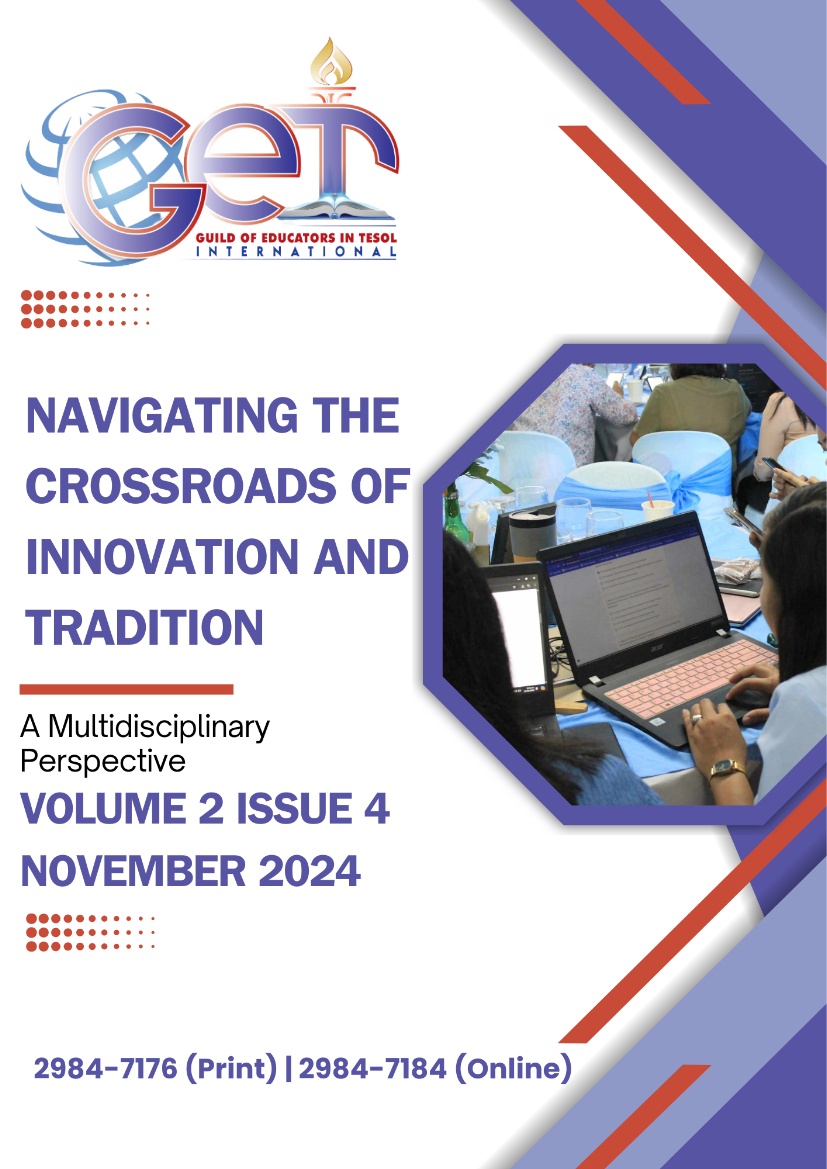







 View PDF
View PDF
ISSN: 2984-7176 (Print) | 2984-7184 (Online)
PUBLISHER: Guild of Educators in TESOL International Institute
PUBLICATION FORMAT: Online
FREQUENCY: Quarterly (Feb, May, Aug, Nov)
LANGUAGE: English | Filipino
ESTABLISHED: 2023
VOLUME: 2
ISSUE: 4
PUBLICATION YEAR: 2024
AUTHOR(S): Franz E. Antonio, Jomhel Cabatac, Syverson D. Cubillo, Gecelene C. Estorico
Technological University of the Philippines — Taguig
Fabric plays a key role in modern society, used widely in fashion and home decor. Different fabrics, including synthetics like polyester, have unique properties that determine their applications. Stains, caused by foreign substances, are categorized into four types: enzymatic, oxidizable, greasy, and particulate. Stain removal often involves chemical-based products, which can be harmful. This study shows that Lemon Peel Extract (Citrus Limon L.) can remove oxidizable and particulate stains. With titrimetric and colorimetric analysis, it was found that 54.83% of particulate and 54.14% of oxidizable stains were removed. Promoting natural alternatives like lemon peel extract helps reduce harmful chemicals, supporting a healthier and more sustainable lifestyle.
citric, discoloration, enzymes, oxalic, polyester
Antonio, F. E., Cabatac, J., Cubillo, S. D., & Estorico, G. C. (2024). EXTRACTION OF LEMON PEEL (Citrus limon L.) AS AN ORGANIC STAIN REMOVER FOR PARTICULATE AND OXIDIZABLE STAINS. GUILD OF EDUCATORS IN TESOL INTERNATIONAL RESEARCH JOURNAL, 2(4), 48–57.
https://doi.org/10.5281/zenodo.14293133
GET INTERNATIONAL RESEARCH JOURNAL IS INDEXED BY:
PLAGIARISM CHECKED BY:

This work is licensed under Creative Commons Attribution-ShareAlike 4.0 International